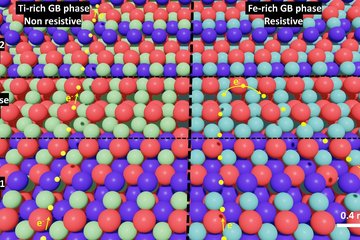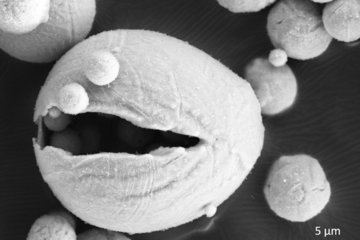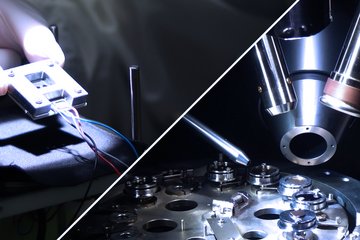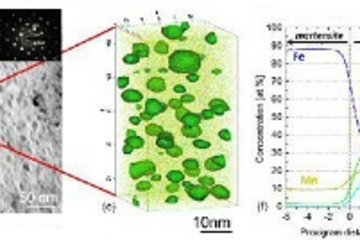All genres
181.
Poster
Effect of external electric fields on the Mg(0001)/H2O interface studied by empirical potentials using automated tools. The electrode potential in electrochemistry workshop - A challenge for electronic structure theory calculations, Castle Reisensburg (Ulm), Germany (2017)
182.
Poster
Effect of external electric fields on the Mg(0001)/H2O. High electric Fields in Electrochemistry and in Atom Probe Tomography - Workshop, Ringberg Castle, Tegernsee, Germany (2017)
183.
Poster
The Mg(0001)/H2O interface studied by empirical potentials and density functional. DPG-Frühjahrstagung 2017, Dresden, Germany (2017)
184.
Poster
Formation Energy of Zn-ions in water: An ab initio molecular dynamics study. ICMR Workshop - Workshop on Charged Systems and Solid/Liquid Interfaces, University of California , Santa Barbara, USA (2015)
185.
Poster
Formation Energy of Zn-ions in water: An ab initio molecular dynamics study. ICMR Workshop - Advances in oxide materials: Preparation, properties, performance, University of California, Santa Barbara, CA, USA (2014)
186.
Poster
Electrochemical Pourbaix phase diagrams from ab initio calculations. XLII CALPHAD Conference, San Sebastian, Spain (2013)
187.
Poster
Interactions of oxidizing species with the Mg(0001) surface: The role of electrostatic contributions. Connecting electrochemical and water simulations: Status and future challenges, Ringberg, Germany (2013)
188.
Poster
Extending the concept of semiconductor defect chemistry to electrochemistry. Connecting electrochemical and water simulations: Status and future challenges, Ringberg, Germany (2013)
189.
Poster
Extending the concept of semiconductor defect chemistry to electrochemistry. Workshop "Connecting electrochemical and water simulations: Status and future challenges", San Sebastian, Spain (2013)
190.
Poster
On the accuracy of ion hydration enegies - An ab-initio study. Gordon Research Conference ''Corrosion - Aqueous'', Colby-Sawyer College, New London, NH, USA (2012)
191.
Poster
Ab-initio Study on Liquid Metal Embrittlement in the Fe/Zn System. International Workshop on Ab initio Description of Iron and Steel (ADIS2012), Ringberg, Germany (2012)
192.
Poster
Theoretical study of the environmental effect of H-containing gases on Fe–Al surfaces. International Meeting on Iron Aluminide Alloys, Lanzarote, Canary Island, Spain (2011)
193.
Poster
Stabilisation of polar ZnO(0001) surfaces in dry and humid environment. FIESTAE - Frontiers in Interface Science: Theory and Experiment, Berlin, Germany (2011)
194.
Poster
Temperature Stabilised surface reconstructions at polar ZnO(0001). Gordon Research Seminar ''Corrosion - Aqueous'', Colby-Sawyer College, New London, NH, USA (2010)
195.
Poster
Towards an ab initio description of corrosion. International Workshop on Ab initio Description of Iron and Steel (ADIS2008), Ringberg Castle, Germany (2008)
196.
Thesis - Master
Automated Calculations for Charged Point Defects in Magnesium Oxide and Iron Oxides. Master, Ruhr-Universität Bochum, GermanyRuhr-Universität Bochum, Bochum, Germany (2016)
197.
Other
Organizer of the workshop “Status and Future Challenges in Characterisation of Interfaces for Electrochemical Applications - Part 1” at the MPIE. (2016)
198.
Preprint
High-resolution chemical and structural characterization of the native oxide scale on a Mg-based alloy. arXiv (2023)
199.
Preprint
Origins of the hydrogen signal in atom probe tomography. arXiv (2021)











